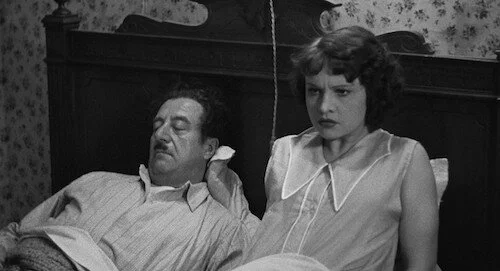The World of Movies: The Baker's Wife
Written by Rachael Crawley
The World of Movies is a series that explores global cinema, drawing on films from many countries, industries and eras. This week, we head to a small French village in 1938...
This review may contain spoilers, for a movie that is older than many of your grandfathers.
The new baker, kind and naïve, literally named “Aimable”. His wife, Aurélie, impossibly glamourous and bored in her mundane setting. The shepherd, handsome, often shirtless, fickle. Their chemistry is instant – and in a few short hours, it will send the village into comic disarray.
When a country has a long and varied film history, it’s sometimes hard to figure out which movie to choose. In the case of France, I decided to go back in time, past the New Wave and before the Second World War, to the days of Marcel Pagnol and his frequent leading man, Raimu. The Baker’s Wife (La femme du boulanger), which followed Pagnol’s Marseille trilogy, was recognized from the beginning, mentioned by the National Board of Review as a Best Foreign Film (with a Best Performance spot for Raimu). Though Pagnol’s work tended to go in and out of popularity in the subsequent decades, Baker has always stood out as a comic example of his Provençal stories. Pagnol understands both the strengths and drawbacks of a small village. Here, they are on full display.
The movie wastes no time in establishing the local characters. Farmers, housewives, the marquis, the priest, the schoolteacher all show their personalities early. One gets the sense, hearing their various conversations, that these are repeated from week to week. In this way, the viewer learns the fundamental dynamics of the community before the title characters even appear. Though this style cannot be called efficient storytelling, exactly (the film clocks in at over two hours), it does bring us into the life of the town very quickly. Everyone knows everyone, and now, so does the audience.
At first, it seems as if the new boulanger and boulangère will be just as seamlessly integrated into the village – and indeed, all appears well on that first day, as Aimable befriends his neighbours and begins to prepare the bakery. Come daybreak, alas, Aurélie is gone with a new friend of her own, and the bakery’s fires are not lit. Upon discovering his wife’s faithlessness, the baker falls apart. The townspeople, missing their bread, decide to bring her back.
The Baker’s Wife
The plot is somewhat beside the point – yes, they are looking for the baker’s wife, but most importantly, it is a way for the townspeople to stumble over each other, get into fights, and have a grand adventure. (Indeed, they sometimes appear more concerned about the marquis’s horse, which the lovers took with them.) At times, this takes a rather dark turn, and the film can be surprisingly frank about the emotional fallout of the situation. While the townspeople feel sorry for the baker, the movie goes out of its way to point out the rapid, mean-spirited spread of gossip, and in one particularly cruel scene, shows that the locals are not above publicly humiliating the man. Pagnol’s films have a reputation for showing idyllic village life, but this place has a surprisingly dark side.
It is a difficult duality that could not succeed without its lead actor. Raimu is the anchor of this film. From his blustering fear to his drunken rambling, the baker appears as a tragicomic figure similar to the great silent comedians. He can go from rapid-fire arguments to morose gloom in the space of seconds. From a vivid cast of characters, he stands out as more than just a “type” – his humanity and basic decency are apparent throughout. The baker provides the movie with emotional nuance, in the middle of its frenzied story. While his fleeing wife is played for humour, Aimable’s devastation is never far from the scene.
Despite the level of buildup, the majority of the actual search only plays out for the last twenty minutes or so of the film, and much of it is off-screen. After all the time Pagnol has taken to show us the minutiae of this village, we will end up staying there - for arguments around local tables and gossip around the water pump - while others go to look for the boulangère. The film only leaves the village to finally bring her back into the story (with a truly hilarious sequence involving the schoolteacher and the priest).
Curiously, Aurélie herself has little screen time, and doesn’t speak much when she’s there – she is usually overshadowed by the marquis, priest, shepherd, or her own husband. Her absence, and the disruption it brings, is far more significant to the town, and thus to the story. It is perhaps fitting that the final scene should be her, and the baker, and the beginning of an ordinary day. The couple have found their place in the village. Their reconciliation has, literally, restored the town’s daily bread.
Rachael Crawley holds a Master's Degree in Film and Photography Preservation and Collections Management from Ryerson University, and has worked with film in Canada and in Europe. She adores language and cinema, and how these subjects interact with each other.




